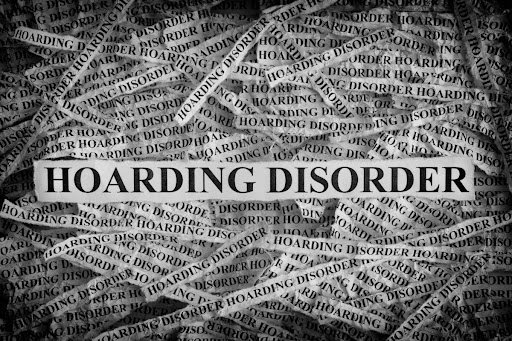Is Hoarding a Form of OCD?
Regardless of the type of obsessive-compulsive disorder (OCD) you have, they all involve problems managing compulsive behaviors or ignoring obsessions. OCD encompasses a large number of conditions, including hoarding disorder. Finding difficulty discarding items often revolves around an obsessive behavior toward possessions or a compulsive desire to continue gathering more.
A Look at Brief Intensive OCD Treatments
Cognitive Behavioral Therapy (CBT) with Exposure and Response Prevention (ERP) is the most empirically supported psychotherapeutic treatment for individuals with Obsessive-Compulsive Disorder (OCD).
Emetophobia: The Fear of Vomiting
Emetophobia, otherwise known as the vomit phobia, is characterized by an overwhelming and disproportionate fear of the acting of vomiting either by oneself or others. This condition is categorized under “specific phobias” in the current (5th) edition of the Diagnostic and Statistical Manual for Mental Disorders (DSM-V).
How to Manage Your Intrusive Thoughts
Intrusive thoughts seemingly come out of nowhere. Perhaps, you’re cutting vegetables for dinner or about to climb into bed when the disturbing image or thought comes to mind. While these thoughts can make you uneasy, they are not uncommon. Most people have intrusive thoughts from time to time. However, for a few people, negative thoughts can become frequent and all-consuming.
Navigating Sexual Intimacy with OCD: Understanding its Impact on Sexual Functioning
Obsessive-Compulsive Disorder (OCD) is a mental health disorder characterized by recurrent, unwanted thoughts, ideas, or obsessions that often drive a person to engage in repetitive behaviors or mental acts (compulsions) to reduce feelings of anxiety or to prevent something bad from happening.
Habit Reversal Training as a Solution for Hair Pulling
We can form a wide range of habits anytime we feel bored, tired, or deep in thought. It can stem from wanting to feel calmer during a triggering situation or more grounded in the moment. It could even be a nervous tick that you have picked up over time. One of the most common ones that can develop is hair pulling.
What Is Seasonal Affective Disorder, and How Do I Manage It?
Do you often dread the upcoming fall and winter months because you know you’ll instantly feel drained of energy and lack the motivation to do anything? You could be suffering from a form of depression that is triggered by the changing seasons.
4 Steps Parents Can Take to Help Their Child Who Is Suspected of a Learning Disability
Someone with a specific learning disorder (SLD) has difficulties learning and using academic skills significantly more than expected for those of the individual’s age. Under the Individuals with Disabilities Act (IDEA) 2004, all states require the use of response to intervention (RTI)/Multi-tiered System of Supports (MTSS)*, and it is considered the best learning disorder assessment to determine eligibility for an SLD.
Five Common Symptoms Occupational Therapists Treat When Working with Autistic Populations
Occupational Therapists (OT) are healthcare workers that help improve the quality of life of their patients. They work with a wide range of people who have injuries, illnesses, and conditions such as autism spectrum disorder.
Man’s Actual Best Friend: Service Dogs
Dogs provide us humans with many blessings, such as companionship, fitness, and lots of snuggles. Back in the 1920s, service dogs were considered almost exclusively for individuals with physical impairments such as auditory or visual. Now, a hundred years later, our world is open to service dogs not only for physical needs but also for mental health.
Supportive Professionals You May Encounter After an Autism Spectrum Disorder Diagnosis
Due to ASD being a developmental neurological disorder, the symptoms can affect daily life functions. There are many health professionals available to help reduce the symptoms caused by this disorder.
How to Evaluate Your Child’s Ongoing Development
Your child’s developmental progress is rarely a linear progression. Different children learn at their own pace and interact with their environment of their own accord. However, parents still track certain developmental assessments that their children should hit at specific stages in early childhood.
How Does Exposure Therapy Help Treat Social Anxiety Disorder?
¼ of people in the United States suffer from an anxiety disorder at some point in their lives. For people living with phobias and anxiety, exposure therapy is considered an effective treatment that you can turn to.
Managing and Living With Tourette Syndrome
The mind remains a complex organ that people have spent their entire lives trying to understand. Figuring out the complexities of the human mind has proven challenging for mental health specialists, and one such condition that remains a subject of study and treatment is Tourette syndrome.
Pink Stuffed Bunny: The Perspective of a Sibling
My mother told me recently that when my younger brother was born, I was so excited because he was “like a real-life baby doll” that I could dress, take care of, and read bedtime stories to (even though I couldn’t read yet).
The Benefits of Exposure Therapy and Response Prevention
The mind has a long list of issues and disorders that can follow people throughout their lifetime. Whether it’s a long-held phobia, an obsessive-compulsive tick, or intense feelings of anxiety, people have looked for ways to deal with these conditions for generations.
Warning Signs Your Child Might Have ADHD
All children can have trouble paying attention or become fidgety or impulsive from time to time. But, how can you tell whether your child’s behavior is normal or if they might have attention deficit hyperactivity disorder (ADHD)?
Autism Spectrum Disorder: What Parents Should Know About the Evaluation Process
An autism diagnosis covers a spectrum of children with a vast range of skills and impairments. As such, the developmental disorder can look considerably different from child to child.


















